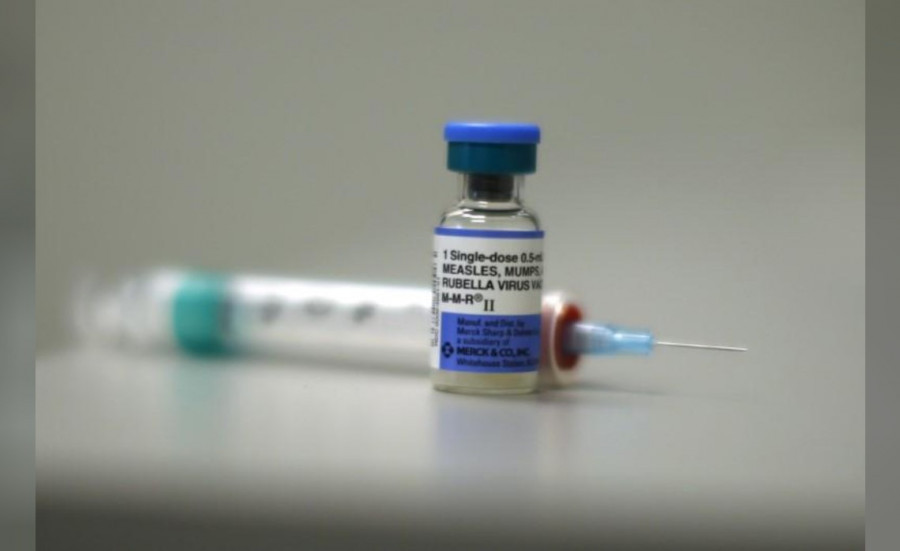Health
Health Ministry to run a nation-wide measles-rubella campaign next year
The immunisation drive is supposed to cover over three million children.
Arjun Poudel
The Ministry of Health and Population has decided to run a nationwide vaccination campaign against measles and rubella virus for two months.
The first phase of the campaign will start on February 13, 2020, and will continue until March 13 in provinces 1, 2 and 5. The second phase will be conducted from March 14 to April 14 in provinces 3, 4, 6 and 7.
"We have planned a month-long campaign to ensure that no child would miss the vaccine," Dr Jhalak Sharma, the immunisation section chief at the Family Welfare Division of the Department of Health Services, told the Post. "During the campaign, we will immunise the children aged between 9 months to 59 months old."
Measles and rubella are contagious viral diseases, which are transmitted through droplets from the nose, mouth or throat of infected persons. Early symptoms, which usually appear 10-12 days after infection include high fever, runny nose, bloodshot eyes and white tiny spots inside the mouth. Several days later, a rash develops on the face, upper neck and other parts of the body.
Doctors say people of all age groups are vulnerable to the disease and underage children, pregnant women, elderly people and those with compromised immune systems—HIV infected people—are highly vulnerable.
Some people may suffer from severe complications, such as pneumonia and encephalitis, and the infection could also lead to death.
The immunisation drive is supposed to cover over three million children. Sharma informed that the Global Alliance for Vaccine and Immunisation would provide the vaccines through UNICEF.
The Department of Health Services has already sent shipment plan to the alliance for the vaccines.
The alliance has committed to provide 3,31,000 vials of vaccines (each vial containing 10 doses), three million syringes and other necessary materials to the government.
Earlier, the health ministry had planned to launch the campaign within December this year. But the vaccination campaign got postponed due to delays in completing the capacity assessment by the aid agency.
With the implementation of the federal system, the responsibility of running the immunisation drive has been transferred to the provincial and local level governments.
Dr Bhim Singh Tinkary, the director of Family Welfare Division, said that mass campaigns against the two viruses should be carried out every four years as the coverage of the vaccines during routine immunisation was low.
Out of over 650,000 children in need of measles-rubella vaccines every year, 120,000 (about 20 percent) miss their inoculation schedule.
Doctors say the chances of the deadly viral disease spreading are higher even if one child misses his/her immunisation.
Meanwhile, the Department of Health Services has been working to extend the deadline to eliminate the deadly viruses from the country. "We will extend the deadline, as the World Health Organization's South-East Asia Regions office has also extended the deadline to 2023," Sharma added.
Earlier, the government had committed to eliminating measles and rubella from the country by 2019.
Low vaccination coverage, floating population, lack of public awareness about the importance of vaccines and apathy on the part of government agencies concerned are considered to be some of the reasons behind the failure of eliminating the disease from the country
Measles was endemic in Nepal, with an average of 90,000 cases recorded every year from 1994 to 2004. Routine measles vaccination began in the country in 1979 with three districts. The campaign was expanded nationwide after 10 years.




 10.12°C Kathmandu
10.12°C Kathmandu















